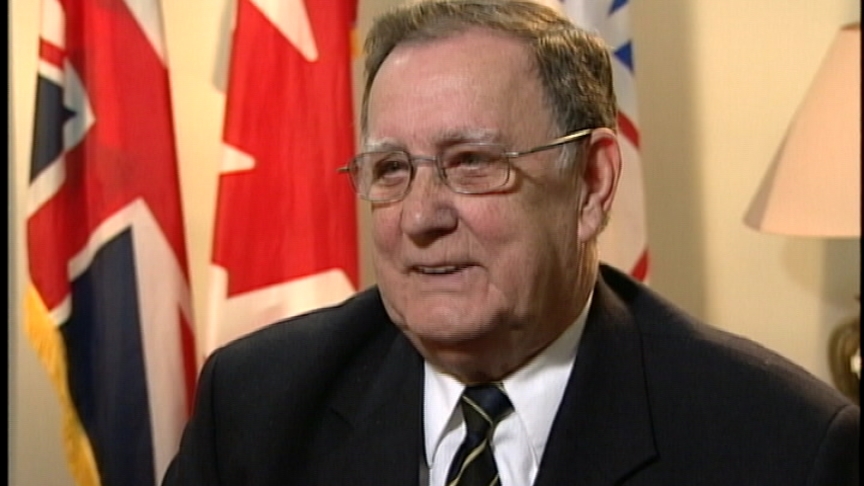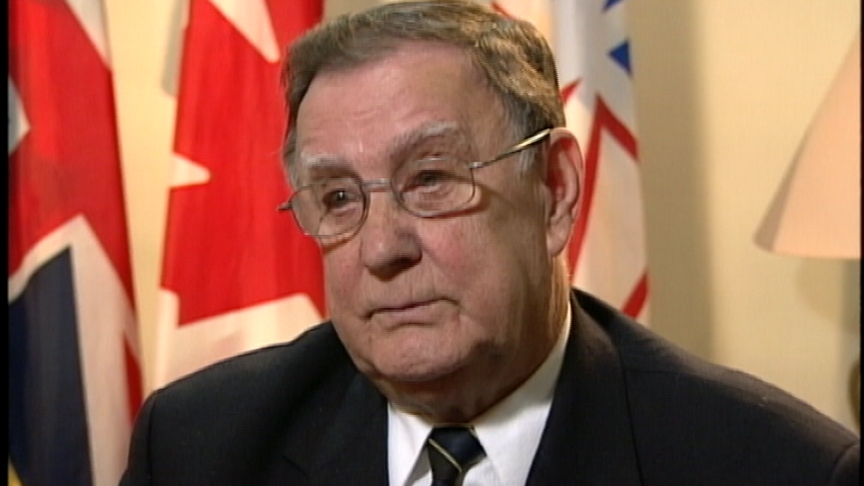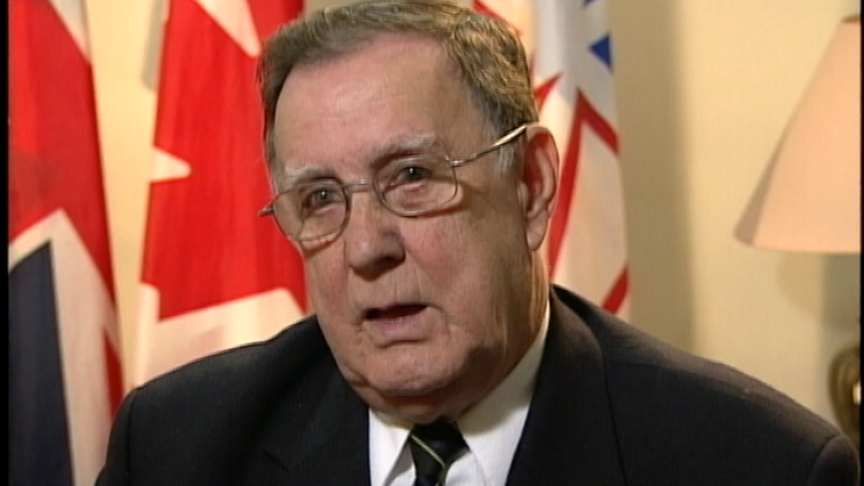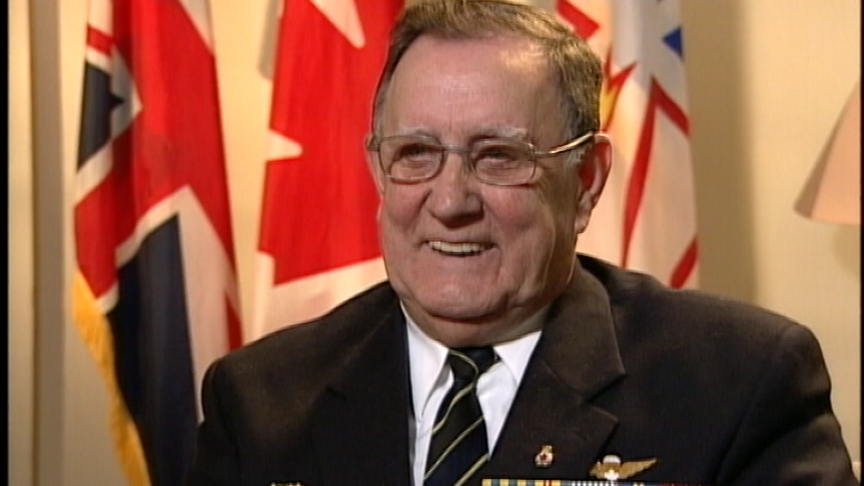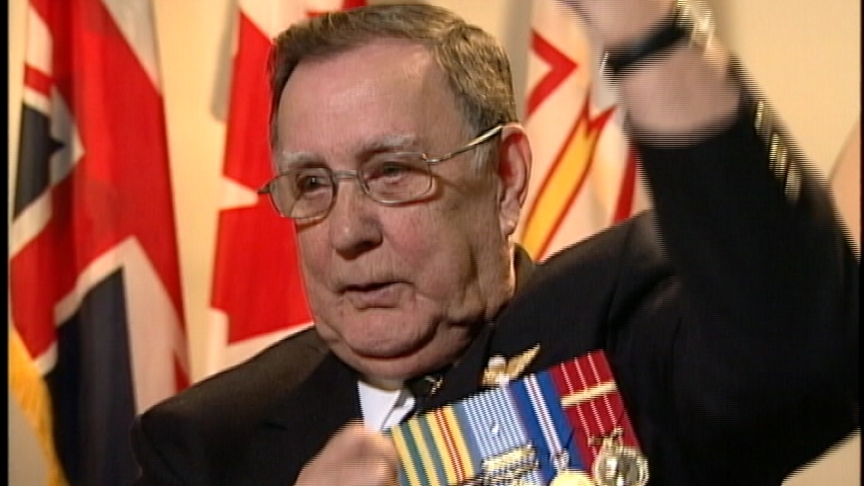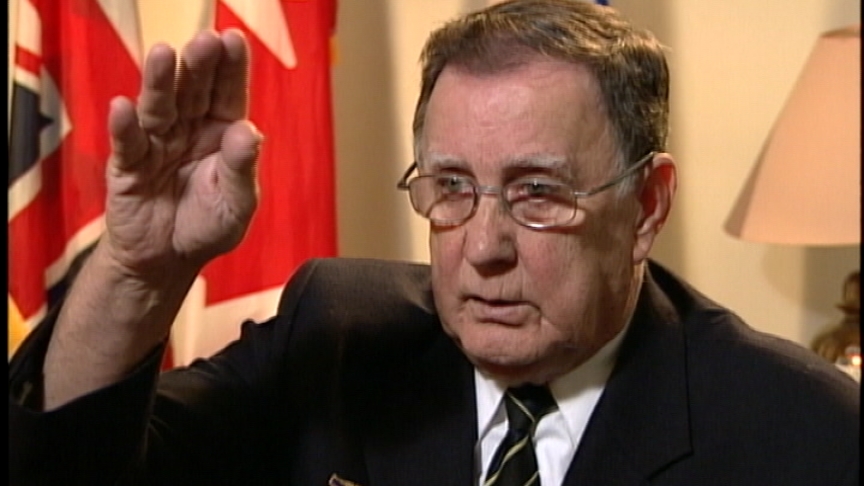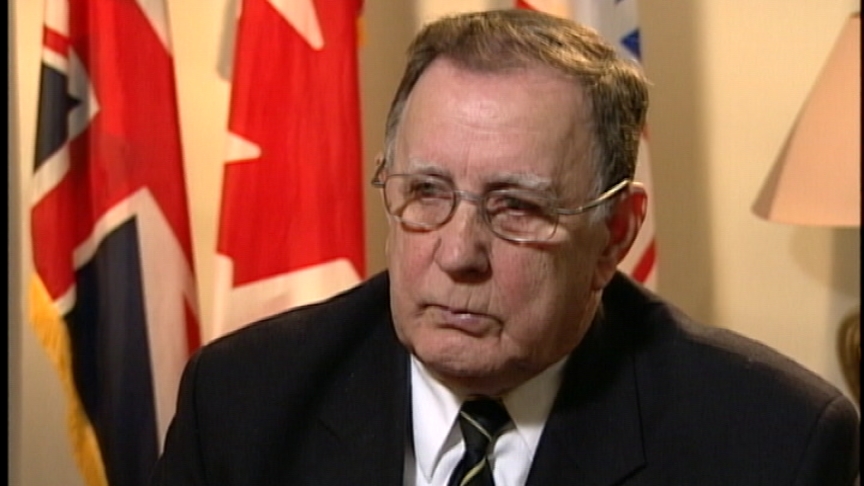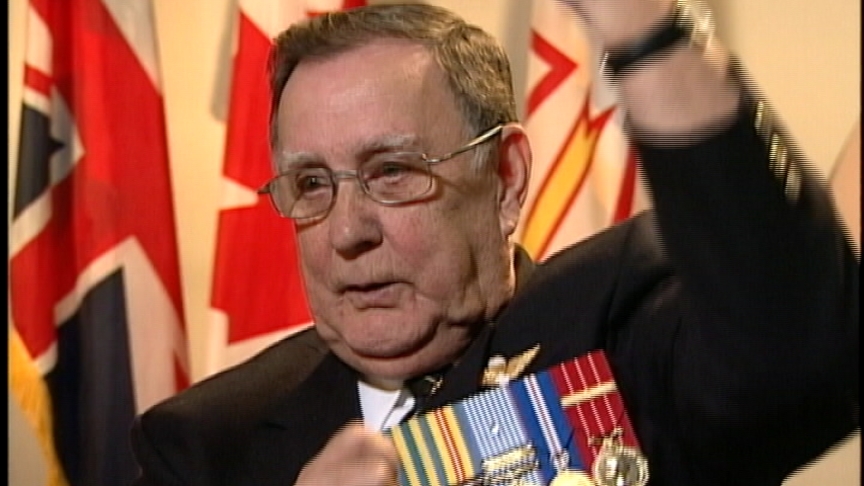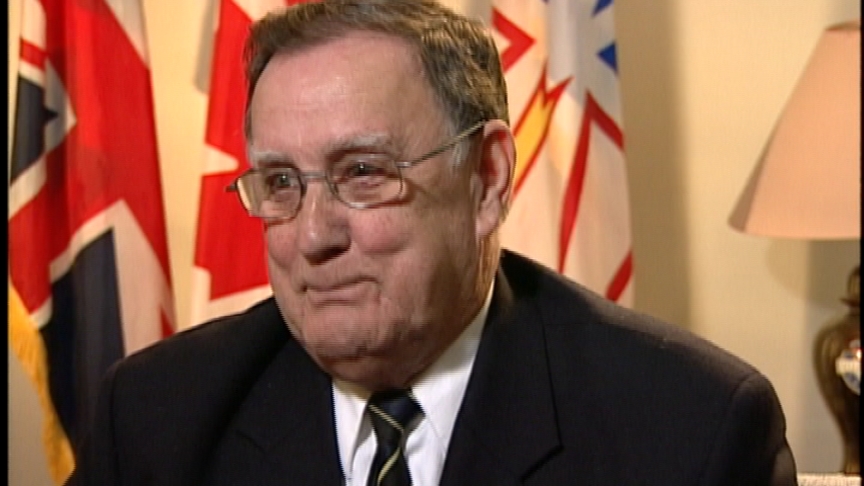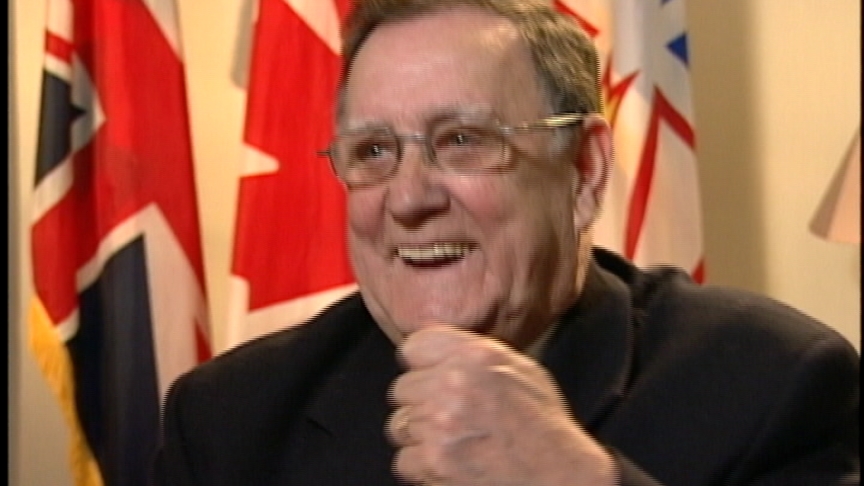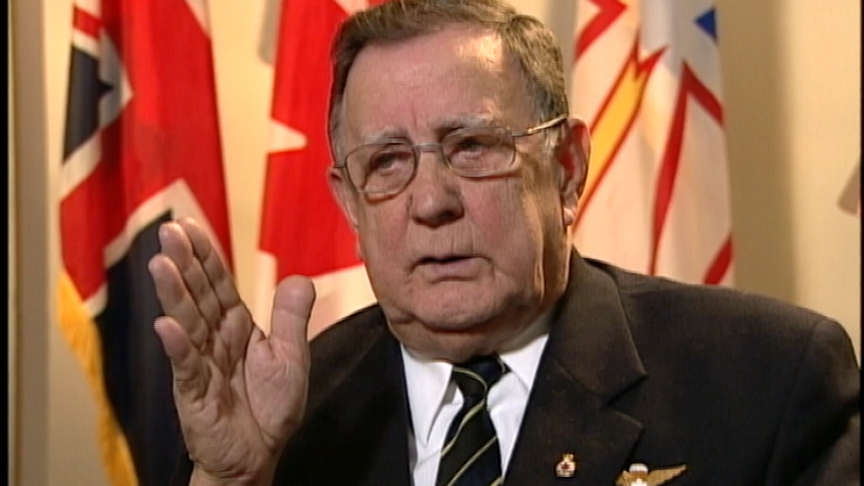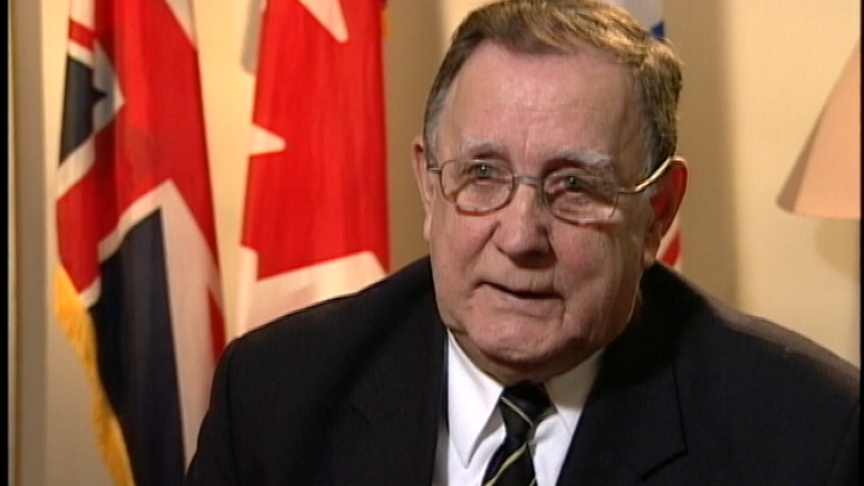You often, even in movies you hear the “shewwwwwww” you know?
They’re not gonna hit you. It’s the ones that you don’t hear is
the ones that you gotta worry about. But no, you’d be there
and you’d be almost clawing into the ground, “What’s wrong with
you guys? Why don’t you just shut them up?” You know,
type thing. Because you don’t know what they’re firing at
because they were overshooting you know, the position we were.
They knew where we were, but they weren’t right on us, thank
goodness for that.
When it comes to mortar firing and heavy, heavy artillery so
that’s all you can do is lie there or hide there and pray that
one don’t come where you are. I’ll tell you one little, one
little incident was close, too close for me. This night, myself
and the sergeant we left command post, the platoon command post.
We were going up to sight in a Bren gun and we were gonna get it
all lined up and we had every third round was a tracer. So we
knew what we had to do, once we get up and we figure the
sighting, let go a few rounds and see if they were going and then
run like hell back to your bunker. And outside of our
bunker we had a blanket and you went inside of it,
it was sort of a little bit and then inside that was another
blanket and we just got inside the bunker when the shell hit
right out in the trench, right opposite the doorway of the
thing. We went out and picked shrapnel and that up. It stopped
shrapnel, believe it or not, loose blankets like and we had
two, so it stopped it actually in the first one. As I say it
must have been just a small mortar shell type thing, fragment.
So that was the closest that, I look at myself today when it
comes to mortars and that, that I was so close to, you know, from
the trench inside of a couple of blankets into the command post.
Interviewer: What did it sound like?
Oh, it sounded and smelled like hell. Cordite and everything
else. Boy it was a pretty loud sound especially when your inside
of another building and it’s outside. And everything like
our candles and everything, all our lights went out and
everything else and it’s... I remember this very clearly, the
officer that we had, he was a Second World War man and he won
the MM as a matter of fact during World War Two. But he
wanted to go to Korea. He had a job in Ottawa and but he wanted
to go to Korea. He was still in the army, but he wanted to go
over to Korea. So finally all the paperwork and that he got and
he came up as our platoon officer. When we got the candles
lit again, he was over... I’m telling you. It was, I figured
that he was dead. He must have been hit with a bit of shrapnel.
So I went over, but I could see movement in his eyelashes and
that, so I gave him a couple of shakes and I said “sir, sir.”
Finally he came out of it. Just sort of, but it was only for you
know, a few seconds and that. He said “I didn’t think,”
he said, “it was this close.”



